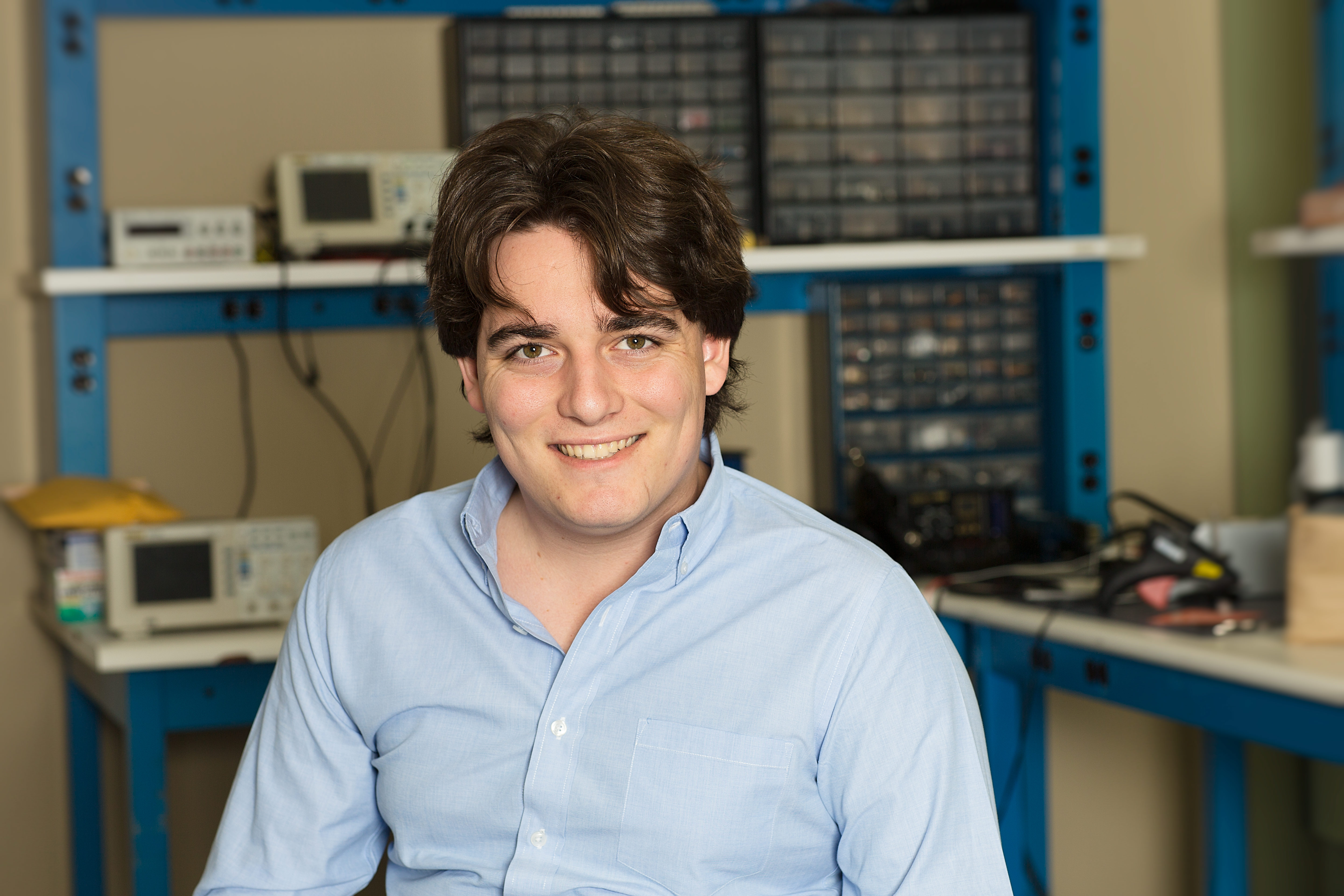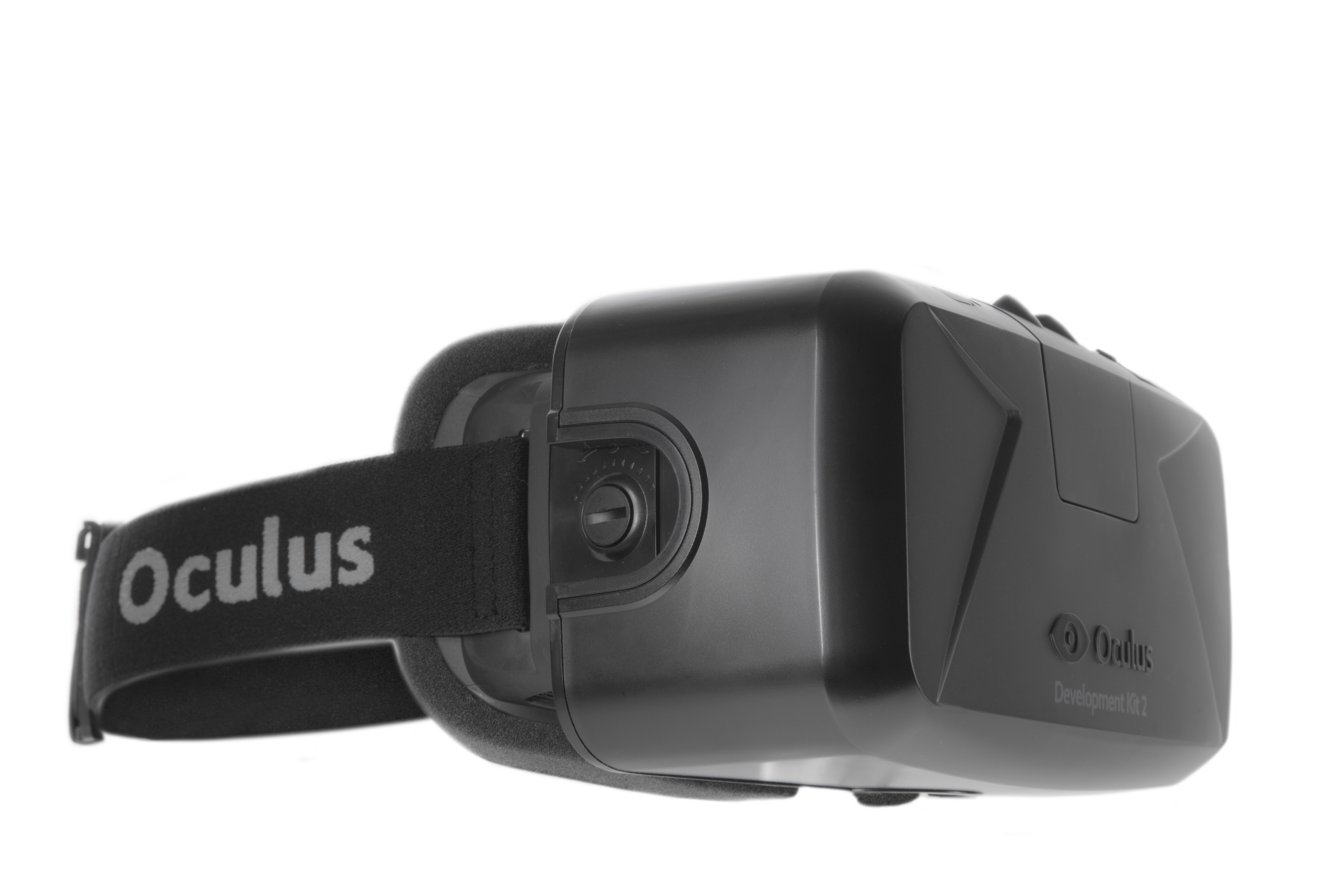The Past, Present, And Future Of VR And AR: The Pioneers Speak
Oculus Rift
Oculus Rift is a name that every PC gamer knows. With the recent $2 billion acquisition by Facebook, Oculus VR is poised to make a big splash in the PC gaming space. Started as a Kickstarter project, the Oculus Rift is a VR headset that relies on the processing power of a PC to deliver the visuals right in front of your eyes. We've tracked Oculus Rift's progress through the various prototypes, and what we've experienced from the Development Kit 2, the latest model, would make us want to spend $2 billion on it too.
Palmer Luckey, founder of Oculus VR, answered Tom's Hardware's questions.
| Oculus Rift DK 2 Specs | |
|---|---|
| Resolution | 960x1080 per eye |
| Refresh Rate | 75, 72, 60 Hz |
| Persistence | 2 ms, 3 ms, full |
| Viewing Optics | 100° Field of View (nominal) |
| Interfaces | |
| Cable | 10' (detachable) |
| HDMI | HDMI 1.4b |
| USB Device | USB 2.0 |
| USB Host | USB 2.0 (requires DC Power Adapter) |
| Camera USB | USB 2.0 |
| Internal Tracking | |
| Sensors | Gyroscope, Accelerometer, Magnetometer |
| Update Rate | 1000 Hz |
| Positional Tracking | |
| Sensors | Near Infrared CMOS Sensor |
| Update Rate | 60 Hz |
| Dimensions | |
| Weight | 0.97 lbs (without cable) |
| Other | |
| Included Accessories | HDMI to DVI Adapter DC Power Adapter International Power Plugs Nearsighted lens cups Lens cleaning cloth |
Tom's Hardware: Is your technology based on AR or VR, and why?
Oculus: Oculus's focus is on VR. VR is a technology that opens completely new doors for entertainment, communication, and more. It's really poised to change the world over the next decade, while true AR still feels like it's a way off from being ready for prime time. That said, VR and AR share a lot of the same technology and challenges and at some point the two will converge.
Tom's Hardware: When will we see mass adoption of VR and AR technology (defined as more than one million customers)?
Oculus: We believe we'll see mass adoption of VR within the next two years. AR will probably take a lot longer for mass-market consumer adoption.
Tom's Hardware: What are the technical hurdles still standing in the way?
Get Tom's Hardware's best news and in-depth reviews, straight to your inbox.
Oculus: Many of the same ones we have always faced: latency, field of view, resolution, and the graphical horsepower required to render photorealistic environments at a high framerate.
Tom's Hardware: What are the non-technical hurdles standing in the way?
Oculus: Wearable tech is still a very new field and convincing people that virtual reality is a meaningful technology is still a major hurdle. Many people won't be interested in the technology until the hardware's form factor improves and we are closer to sunglasses. Virtual reality input is also a huge challenge! Nobody knows the best ways to interact in a VR environment yet, and natural interface hardware is still very primitive. The biggest challenge of all, though, is going to be content: other platforms benefit from decades of history, and a large degree of backwards compatibility. VR has to start from the ground up with content that is built around the strengths and weaknesses of the technology.
Tom's Hardware: What steps are needed to remove those hurdles? What is your company doing specifically and technically to remove those hurdles?
Oculus: We've been able to tackle many of the initial challenges by building the most talented team in the industry and investing heavily in custom hardware that is designed for VR. Until now, we've been able to leverage a lot of hardware directly from the mobile phone industry, but we're able to deliver a much more compelling experience if we deliver an integrated system built from the ground up. We're also investing heavily in content, doing everything we can to help developers and content creators create the best VR content possible.
Tom's Hardware: How will VR and AR change the gaming ecosystems in the future (PCs and components, consoles, controllers, and the games themselves)?
Oculus: That depends on how far into the future you look! VR will complement with traditional PCs and consoles for a long time, but in the long run, it has the potential to simulate even those experiences. VR demands a lot more from hardware than any console does, and the returns on computing horsepower will be obvious and impressive for a long time.
Tom's Hardware: How will VR and AR change the world outside of gaming? Give us the most remarkable, life-changing examples you expect to happen.
Oculus: Right now, the games industry is the only one that has the tools and talent required to build immersive 3D worlds, and that isn't set to change in the near future. When VR takes off, what we currently call the "games" industry will expand far beyond entertainment. Communicating in more human ways over long distance, education that goes beyond words on a page, training people to overcome their fears or survive in situations too costly or too expensive to simulate, the list goes on and on. All these experiences will be extensions of the gaming that we do today, some simulating the real world, and some simulating impossible worlds. We're most excited for the latter; people have always wanted to experience the fantastic, to see what they don't see in their everyday lives. What happens when anyone can be what they want to be and do what they want to do with no limitations? That's going to be remarkably life-changing for billions of people around the world.
Current page: Oculus Rift
Prev Page The Timeline Of Augmented Reality Next Page Oculus VR Historical Timeline-
icepick314 would Virtual Boy from Nintendo count as VR tech?Reply
it's missing in the article's timeline...
also an arcade game Time Traveler that had "holographic" screen... -
Cazalan I think they're wasting too much time on the motion capturing aspect. Just give me a headset that looks better than a 30" monitor and I'm sold.Reply -
Vlad Rose With the Virtual Boy, I would call it VR tech as it uses similar technology that used in the VR gear that is coming out. With Time Traveler and Holosseum, I would say no. What they used was a single 2D screen that was projected to a curved mirror to create a false reality of the image 'sticking out'. It is more comparable to 3D movies than Virtual Reality.Reply -
clonazepam The Vuzix seems pretty cool. We've already accepted bluetooth headsets and its a very similar look. I hope they all account for the fact that some people are right-handed and left-eye dominant or other way around, as well as color blind or red / green deficient.Reply
I think the Vuxio would be the most useful in everyday life, while obviously Oculus or Morpheus being the most fun. -
Shankovich Morpheus looks cool but it just can't compete with the rift when hooked up to the PS4; it just doesn't have the graphical power to run above 1080P games with acceptable level of detail, effects, etc. especially when the frame rate will need to be at 60fps or more to reduce nauseating effects. On PC, the rift has better sensors (geomagnetic) and is better able to take care of movement lag.Reply -
CaedenV @CazalanReply
Agreed. I am all for VR to hit when it is really ready, but until then I would be extremely happy with a high resolution headset to use as an immersive display. I don't want to have to crane my neck and change my body's orientation when gaming. I still want a keyboard/mouse or controller as input and be able to sit back on the couch and just play a game. I have a nice big yard to work on if I want something active to do... when I am gaming I want to get into it, but with the least amount of physical effort possible. -
Henderburn The VR timeline should include the release of "Snow Crash," the novel that inspired John Carmack and Michael Abrash to make Quake and build the foundations for VRReply -
WyomingKnott I'm still waiting for a decent eyeglass-size display so I can read a book while the dentist pokes at my teeth. Seriously, we don't have even the basic display element available commercially?Reply -
Cybolic Vuzix examples are probably the worst I've ever heard: "having a sales associate be able to answer your questions" and "see exactly where your veins are so they only stick you once with the needle to get the blood", yeah, they are supposed to already be able to do that without wearing special glasses; it's literally what they're being paid for.Reply


